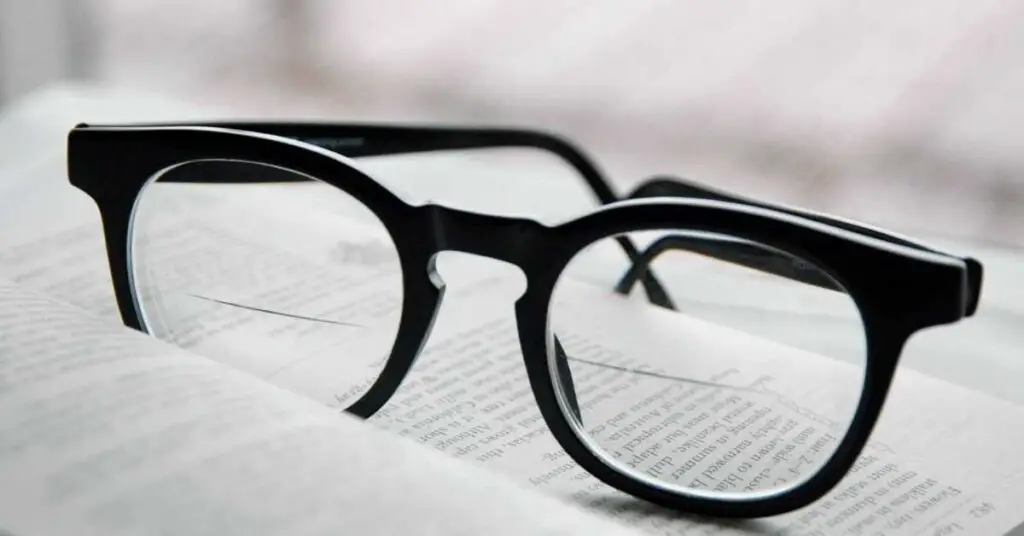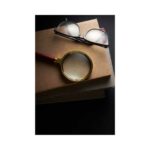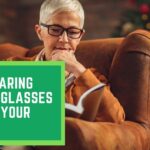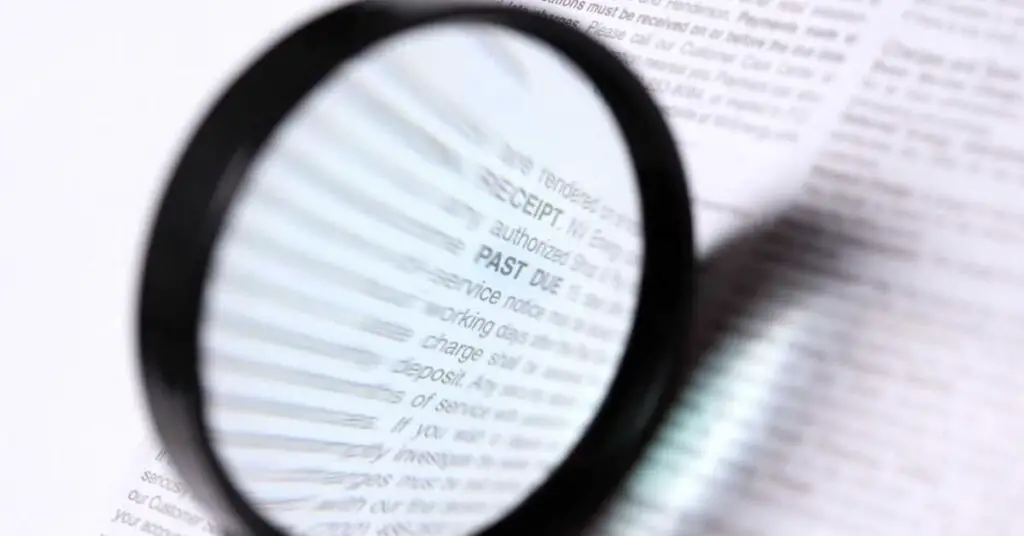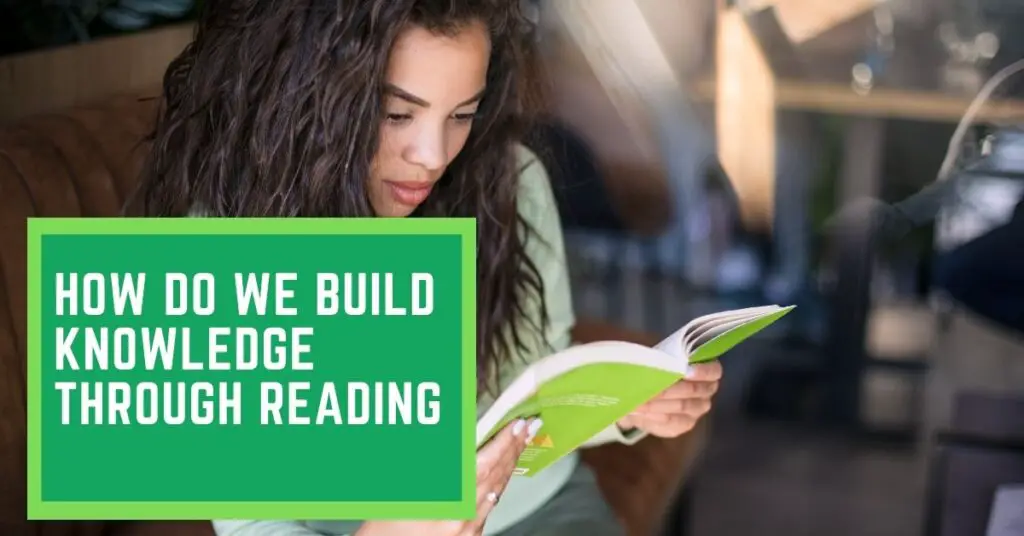For many of us, reading glasses are a necessary part of life. As we age, our eyesight begins to deteriorate and it becomes more difficult to focus on close objects. Reading glasses help to correct this problem by magnifying the print on the page and making it easier to read. However, choosing the right pair of reading glasses can be a daunting task. There are a wide variety of styles and brands available, and it can be difficult to know which ones will work best for you. In this guide, we will take a look at some of the things to consider when choosing reading glasses, including frame style, lens type, and prescription strength. Armed with this information, you will be ready to find the perfect pair of reading glasses for your needs.
There’s no one-time answer to this question.Most people need reading glasses when they reach middle age. However, some people may need them earlier if they have a family history of vision problems or if they spend a lot of time reading or using the computer. If you are having trouble seeing close-up, or notice that your eyes feel tired after reading or using the computer, it’s time to see your eye doctor. He or she can tell you if you need reading glasses and what strength will work best for you.
What are the signs that you need reading glasses?
One of the most common signs that you may need reading glasses is if you find yourself holding books or other reading material at arm’s length in order to be able to see the print. If you find that your arms are getting tired when reading, or that you need more light than usual, it may be a sign that you need reading glasses.
Other signs include difficulty focusing on close objects,eye fatigue, or headaches after reading for a period of time. If you experience any of these symptoms, it is important to see an eye doctor for an evaluation. With proper treatment, reading glasses can help improve your vision and make reading more enjoyable.
How to choose the right pair of reading glasses?
When you need reading glasses, it is important to choose the right pair. The wrong pair of glasses can cause eye strain, headaches, and even make your vision worse. Here are a few things to keep in mind when choosing reading glasses:
– Your glasses should be the right strength for your eyes. You can have your eyes checked by an optometrist to find out what strength you need.
– The lenses should be made of a material that does not distort your vision. A good option is high-index lenses, which are thinner and lighter than regular lenses.
– The frames should be comfortable and shouldn’t slip down your nose. Look for frames with adjustable nose pads or spring hinges.
– You may also want to consider photochromic lenses, which darken in sunlight and provide UV protection.
Take your time when choosing reading glasses, and make sure you pick a pair that is comfortable and will help you see clearly.
Types of reading glasses
There are a few different types of reading glasses that you can choose from depending on your needs. If you only need help with close-up work, you can opt for reading glasses that have a lower power lens. These are ideal for people who don’t spend a lot of time looking at things up close.
If you need help with both close-up and distant vision, you can choose bifocal or progressive reading glasses. Bifocals have two different powers in the same lens, while progressives gradually increase in power from the top to the bottom of the lens.
Trifocals are also available, but they are not as common. Whichever type of reading glass you choose, make sure to get them fitted by an eye care professional so that they are comfortable and offer the best possible vision correction.
How to use and care for your reading glasses?
Whether you’ve just gotten your first pair of reading glasses or you’ve been wearing them for years, it’s important to take good care of them. Here are a few tips:
– Clean your glasses regularly with mild soap and water, or a specialized lens cleaner.
– Avoid using harsh chemicals, such as Windex, which can damage the coating on lenses.
– Handle your glasses carefully, by the frame only. Avoid squeezing the lenses or getting them fingerprinted.
– Don’t leave your glasses in direct sunlight, which can warp the frame or fade the lens coating.
– When not in use, store your glasses in a clean, dry place. A Case will help keep them safe from scratches and other damage. With proper care, your reading glasses should give you many years of clear vision!
Where to buy reading glasses?
The answer may be easier than you think. With a few simple clicks, you can find a pair of reading glasses that suit your style and needs. You can also find a variety of online retailers that offer reading glasses at affordable prices. But how do you know which retailer is the best? Here are a few tips to help you find the perfect pair of reading glasses:
First, consider your budget. How much are you willing to spend on a new pair of reading glasses? Keep in mind that you don’t have to break the bank to find a good pair of glasses. There are plenty of retailers that offer quality reading glasses at reasonable prices.
Second, take into account your prescription. If you have a complex prescription, you’ll want to make sure that the retailer you choose can fill it. Also, consider whether you need bifocals or trifocals. These types of lenses can be more expensive, but they may be worth the investment if you wear them regularly.
Third, think about your style. Do you prefer classic or trendy frames? Do you need glasses that will complement your wardrobe? When you know what type of frames you’re looking for, it will be easier to find a retailer that carries them.
Finally, don’t forget to compare prices. Even if you find a retailer who offers great customer service and low prices, it’s still important to shop around. Compare the prices of several different retailers before making your final decision. By taking the time to do your research, you can be sure that you’re getting the best deal on reading glasses.
The benefits of wearing reading glasses
Most people experience some degree of vision problems as they age. For many, this means needing reading glasses in order to see clearly up close. While some people may view this as a nuisance, there are actually several benefits to wearing reading glasses.
First, reading glasses can help to prevent eye strain. If you squint to see small print, you are putting unnecessary strain on your eyes. This can lead to headaches and fatigue. Wearing reading glasses can help you avoid this by allowing you to see more clearly.
Additionally, reading glasses can help improve your overall posture. If you hunch over to try and see small print, it can cause back and neck pain. However, if you wear reading glasses, you can sit up straight and still be able to see clearly. This can help reduce pain and improve your posture overall.
Finally, wearing reading glasses can simply make everyday tasks easier. Whether you’re trying to read a book or check your phone, being able to see clearly can make all the difference in the world. So if you’re having trouble seeing up close, don’t hesitate to pick up a pair of reading glasses. They just might make your life a little bit easier.
Conclusion
Reading glasses are a necessity for many people as they age. However, there are several benefits to wearing them, including preventing eye strain, improving posture, and making everyday tasks easier. So if you’re having trouble seeing up close, don’t hesitate to pick up a pair of reading glasses. They just might make your life a little bit easier.
FAQS
At what age do most people need reading glasses?
The need for reading glasses typically arises around the age of 40 due to a condition called presbyopia, which is a natural part of the aging process.
What are the signs that I may need reading glasses?
You may need reading glasses if you experience difficulty reading small print, holding reading material farther away to see it clearly, or find yourself squinting when reading or doing close-up work.
Do people with presbyopia need reading glasses for distance vision as well?
People with presbyopia typically have difficulty focusing on close-up objects and small print, but their distance vision may still be clear. Reading glasses are specifically designed to enhance near vision.
Can wearing reading glasses make my eyes age faster?
Wearing reading glasses does not make your eyes age faster. In fact, using reading glasses when needed can help reduce eye strain and discomfort associated with presbyopia.
Will I eventually need reading glasses if I already wear glasses or contact lenses for distance vision?
If you currently wear glasses or contact lenses for distance vision, you may still develop presbyopia and need reading glasses for close reading and other near-vision tasks as you get older.
How can I get a reading glasses prescription?
To get a reading glasses prescription, schedule an eye exam with an optometrist or ophthalmologist, who will assess your near vision and determine the appropriate corrective lenses for your reading needs.

